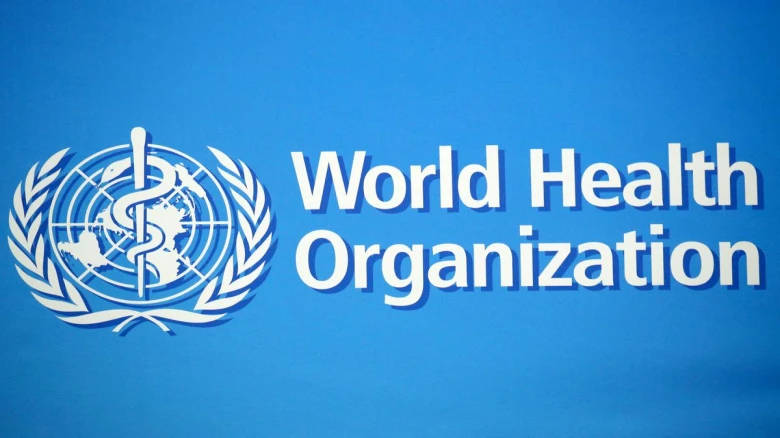Regional

He stated that the initiative is being developed for all countries and that vaccines will be distributed mostly based on their statistical needs.
Digital Desk: The World Health Organization (WHO) has introduced a new vaccine-sharing method to combat monkeypox outbreaks in more than 30 countries outside Africa. The plan could lead to the United Nations' health agency providing limited vaccination doses to wealthy nations that could otherwise avail them.
As per some health experts, the attempt may lose a chance to control the monkeypox virus in African countries where it has affected people for years, showing yet another example of vaccine distribution injustice similar to the Covid-19 pandemic.
WHO Director-General Tedros Adhanom Ghebreyesus said the organization is working on an open-access plan for vaccines and medicines, which it intends to have available in the coming weeks. Notably, the method was suggested immediately after hundreds of monkeypox cases were reported in the United Kingdom, Canada, France, Germany, the United States, and other nations last month.
Smallpox vaccines, which are similar, are considered to be 85 per cent effective against monkeypox. Hans Kluge, WHO's Europe director, expressed alarm on Wednesday about some wealthy countries' rush to buy additional vaccines while ignoring the need to purchase supplies for Africa.
Kluge advised countries to address monkeypox without repeating the pandemic's blunders. Nonetheless, he would not rule out the potential that countries such as the United Kingdom, which is presently experiencing the world's largest outbreak outside of Africa, may obtain vaccines through the WHO's system.
He stated that the initiative is being developed for all countries and that vaccines will be distributed mostly based on their statistical needs.
Kluge observed that Europe remains the focus of the increasing outbreak, with 25 countries reporting over 1,500 cases, accounting for 85 per cent of the global total.
Several African specialists questioned why the United Nations' health agency has never advocated utilizing vaccines in the disease's endemic regions of Central and West Africa.
Dr Ahmed Ogwell, acting director of the Africa Centers for Disease Control and Prevention, believes that Africa is the best area to launch any vaccine programme.
He stated the absence of immunizations to combat monkeypox across the continent, where over 1,500 suspected cases and 72 deaths have been reported this year, was a greater concern than the clusters of the largest minor disease reported in developed countries.
Dr Ifeanyi Nsofor, Director of policy and advocacy at Nigeria Health Watch, said this is a continuation of the injustice they observed under covid-19. "We have hundreds of instances of monkeypox in Nigeria since 2017, and we're dealing with it on our own. Nobody has mentioned when vaccines for Africa would be ready," he added.
Global health authorities rushed to set up COVAX, a United Nations-backed effort to deliver COVID-19 vaccines, after the coronavirus pandemic erupted in 2020. However, most of the world's supply was purchased by wealthy countries, and the COVAX programme failed to meet various targets to distribute doses to the poorest countries.
So far, only 17% of persons in developing nations have received a single dose of the coronavirus vaccine. The same thing could happen with monkeypox, according to some scientists.
There is no clear method for poorer nations to receive vaccines, just as there is no clear path for COVID, according to Brook Baker, a Northeastern University law professor who specializes in access to medicines.
He noted that while the WHO tries to figure out how many vaccine doses are accessible, wealthy countries that had previously promised doses may refuse to comply.
Baker anticipated that rich countries would defend themselves while people in the global south died.
On Monday, the advocacy group Public Citizen sent a letter to the White House, asking if the Biden administration would release the 20 million smallpox vaccines the U.S. pledged in 2004 for WHO's use in an emergency, like a biological attack.
The advocacy group Public Citizen submitted a letter to the White House on Monday, asking if the Biden government would disclose the 20 million smallpox vaccines the U.S. promised in 2004 for WHO's use in an emergency, like a biological assault.
When asked about the pledge, a senior U.S. official said the administration was looking into all alternatives to help stop monkeypox in the U.S. and worldwide.
According to the official, the U.S. returned over 200,000 doses of a smallpox vaccine to the manufacturer so that they may be distributed to other countries. The source would not explain whether the United States deems the current monkeypox outbreak to be an emergency that requires the release of the 20 million immunizations pledged.
Francois Balloux, an infectious diseases researcher at University College London, stated that vaccination attempts in developed nations should stimulate a rethinking of future monkeypox response plans in Africa.
Further, he added that vaccinating individuals in Africa, where a more dangerous form has killed people, should be a top priority.
As per Balloux, whatever vaccine occurs in Europe will not cure the problem.
Leave A Comment